-
Sierra Leone becomes the first country, among those most severely affected ten years ago by the West Africa Ebola outbreak, to launch nationwide preventive Ebola vaccination, targeting 20,000 frontline workers who will receive a single dose of Ebola vaccine
-
The campaign comes one decade after the 2014 Ebola PHEIC – the deadliest Ebola outbreak in history – during which Sierra Leone was the country hardest-hit, including the loss of 7% of its health care workforce
-
With the virus presenting an ongoing threat in endemic regions, preventive Ebola vaccination will protect frontline workers, communities and health systems in advance, helping mitigate the impact of future outbreaks
Freetown/Sierra Leone, December 4, 2024 – Tomorrow – one decade after the deadliest Ebola virus disease (EVD) outbreak in history wreaked havoc on the country and its health care workforce – Sierra Leone will become the first country, among the three most severely affected ten years ago by the West Africa Ebola outbreak, to launch a nationwide preventive Ebola vaccination campaign targeting frontline workers. The campaign, implemented by the Sierra Leone Ministry of Health (MOH) in partnership with Gavi, the Vaccine Alliance (Gavi), World Health Organization (WHO) and UNICEF, will target 20,000 frontline workers in all 16 districts across the country.
A single dose of the Ebola vaccine Ervebo will be administered to health care professionals, frontline workers and first responders such as motorbike riders/ambulance drivers, traditional healers, religious leaders, security forces and others who are at high risk of being exposed to EVD. Vaccines are provided from the Gavi-funded global vaccine stockpile administered by the International Coordinating Group (ICG) on Vaccine Provision. Gavi is also providing funding for implementing the vaccination campaign, with technical assistance support to the MOH provided by WHO and UNICEF.
This preventive vaccination campaign comes one decade after the deadly 2014–2016 Ebola outbreak, which was declared a Public Health Emergency of International Concern (PHEIC) by WHO. That outbreak resulted in more than 11,000 deaths, primarily in West Africa, but cases were detected in 10 countries around the world. Of these, Sierra Leone was the hardest hit, with close to 9,000 confirmed cases and probable cases, including close to 4,000 deaths. Alongside the devastating loss of life and long-ranging economic impacts, the outbreak affected Sierra Leone’s health system deeply: killing nearly 7% of the health care workforce, who were up to 32 times more likely to be infected by Ebola than the general adult population, according to WHO.
“This nationwide preventive vaccination campaign marks a significant step in strengthening our health system. Protecting our frontline workers is vital to our National Health Security Plan, ensuring preparedness and resilience against future health threats. This is an investment in the safety of our people and a healthier Sierra Leone,” said Dr Austin Demby, Minister of Health, Sierra Leone.
At the time of the 2014 West Africa outbreak, there were no approved vaccines. Gavi took immediate action to incentivize rapid development and production, announcing its commitment to purchase eligible vaccines and later signing an agreement to secure 300,000 investigational doses of Ervebo, and funding their use by countries and partners to respond to outbreaks – helping demonstrate the near 100% efficacy of the vaccine. In 2021, Gavi agreed to fund a global stockpile of 500,000 doses of Ebola vaccine. This stockpile is managed by the ICG, with doses procured by UNICEF, and it is accessible to any country in the world. Since then, nearly 146,000 doses have been shipped from the stockpile through 2023, 95% have been repurposed for preventive vaccination of high-risk groups, and 5% used in outbreak response.
Many of us remember the fear and devastation that the 2014 Ebola outbreak, the deadliest in memory, caused around the world. One decade later, vaccination has transformed our ability to fight one of the world’s deadliest diseases,” said Dr Sania Nishtar, CEO of Gavi, the Vaccine Alliance. “Gavi is incredibly proud of how our mission to ensure timely and equitable access to vaccines against the most significant infectious disease threats has helped redefine Ebola response, saving lives and protecting communities, health systems and economies. To have the first nationwide preventive vaccination campaign take place in the country most deeply impacted by the 2014 outbreak makes this historic milestone even more meaningful. We commend Sierra Leone and our Alliance partners for their continued commitment to protecting those most at risk, and look forward to the vaccines being rolled out in other at-risk countries.”
Following the EVD outbreak in Guinea in February 2021, WHO conducted a rapid risk assessment, which classified the regional risk of spread as high. In response, WHO supported governments to implement immediate preventive measures such as enhanced surveillance, strengthened screening at border points, robust community engagement, deployment of Rapid Response Teams to border areas to bolster district preparedness, and scaling up capacities for testing and treatment facilities.
“Although three years have passed since the last EVD outbreak in neighbouring Guinea, WHO has remained committed to collaborating with partners and vaccine manufacturers to ensure the availability of highly effective, life-saving vaccines for populations most at risk in Sierra Leone. These sustained efforts and partnerships have led to the 2024 nationwide EVD vaccination campaign, targeting health care workers, traditional healers, motorbike taxi riders and other frontline workers,” explained Dr Thompson Igbu, Head of the WHO Sierra Leone Expanded Programme on Immunization team.
WHO has provided technical, logistical and funding support for implementation of the vaccination exercise, including the training of health care workers in readiness of the vaccination exercise.
Rudolf Schwenk, UNICEF Representative in Sierra Leone, said, “This life-saving vaccine gives communities and frontline workers new hope for protection against this deadly disease. UNICEF, working closely with the Ministry of Health and WHO, is an integral part of this nationwide campaign to ensure that the vaccines are safely stored and delivered to key target groups including health workers. And we appreciate Gavi’s critical contribution to protecting families from life-threatening diseases like Ebola.”
UNICEF procured and delivered the over 20,000 doses of the Ervebo vaccine to Sierra Leone. The cold chain system, built with assistance from UNICEF and WHO, stores the vaccine in ultra-low temperature freezers, which is essential to maintaining its potency. These efforts are combined with community engagement and risk communication activities to increase vaccine uptake, reduce hesitancy and build trust.
Other countries including the Democratic Republic of the Congo, Uganda and Guinea-Bissau have also recently conducted preventive vaccination campaigns. The next country planning to roll out preventive Ebola vaccination is the Central African Republic (timing to be determined), with other at-risk countries also considering the timing of their implementation. In total, 18 countries that have previously reported EVD cases or that share a border with a country that has experienced an EVD outbreak are eligible for the Gavi preventive vaccination programme, which aims to provide additional protection in the areas an Ebola outbreak is most likely to occur.
NOTES TO EDITORS
Sierra Leone, alongside Liberia and Guinea, was among the three countries most severely affected by the 2014 West Africa Ebola outbreak.
- More details on Sierra Leone, Ebola and Preventive Ebola vaccination, including links to additional resources, are available in this Gavi factsheet.
- Multimedia content from Sierra Leone and other countries impacted by Ebola, including photos, interviews and b-roll, is available here.
About Ministry of Health, Sierra Leone
The Ministry of Health (MOH) of Sierra Leone is the government body responsible for overseeing public health and medical services across the country. Guided by its vision of achieving universal health coverage, the MOHS is dedicated to ensuring equitable access to quality healthcare services for all citizens. Key functions of the ministry include developing and implementing health policies, coordinating responses to public health emergencies, promoting preventive care, and strengthening the health system to address current and emerging health challenges. The Ministry works in collaboration with international partners, non-governmental organisations, and local communities to improve health outcomes, prioritising areas such as maternal and child health, disease prevention, and health infrastructure development.
About Gavi, the Vaccine Alliance
Gavi, the Vaccine Alliance is a public-private partnership that helps vaccinate more than half the world’s children against some of the world’s deadliest diseases. The Vaccine Alliance brings together developing country and donor governments, the World Health Organization, UNICEF, the World Bank, the vaccine industry, technical agencies, civil society, the Bill & Melinda Gates Foundation and other private sector partners. View the full list of donor governments and other leading organisations that fund Gavi’s work here.
Since its inception in 2000, Gavi has helped to immunise a whole generation – over 1.1 billion children – and prevented more than 18.8 million future deaths, helping to halve child mortality in 78 lower-income countries. Gavi also plays a key role in improving global health security by supporting health systems as well as funding global stockpiles for Ebola, cholera, meningococcal and yellow fever vaccines. After two decades of progress, Gavi is now focused on protecting the next generation, above all the zero-dose children who have not received even a single vaccine shot. The Vaccine Alliance employs innovative finance and the latest technology – from drones to biometrics – to save lives, prevent outbreaks before they can spread and help countries on the road to self-sufficiency. Learn more at www.gavi.org and connect with us on Facebook and X (Twitter).
About UNICEF
UNICEF works in some of the world’s toughest places, to reach the world’s most disadvantaged children. Across more than 190 countries and territories, we work for every child, everywhere, to build a better world for everyone. As part of its support to the health sector in Sierra Leone, UNICEF continues to provide critical technical support, including funding and vaccine management guidelines, to ensure the rollout of vaccination campaigns, including Ebola, to the most at-risk communities across the country. For more information about UNICEF and its work for children in Sierra Leone, visit https://www.unicef.org/sierraleone or follow us on Twitter, Facebook, Instagram and YouTube.
About WHO
Dedicated to the well-being of all people and guided by science, the World Health Organization leads and champions global efforts to give everyone, everywhere an equal chance at a safe and healthy life. We are the UN agency for health that connects nations, partners and people on the front lines in 150+ locations – leading the world’s response to health emergencies, preventing disease, addressing the root causes of health issues and expanding access to medicines and health care. Our mission is to promote health, keep the world safe and serve the vulnerable.
For more information about WHO in Sierra Leone, visit https://www.afro.who.int/countries/sierra-leone Visit www.who.int and follow WHO on Twitter, Facebook, Instagram, LinkedIn, TikTok, Pinterest, Snapchat, YouTube.
For media queries, requests for interviews, and additional information, contact:
Harold Thomas, Ministry of Health
+232 766 024 60
health.education [at] mohs.gov.sl (health[dot]education[at]mohs[dot]gov[dot]sl)
Eunice Kilonzo-Muraya, Gavi
+41 76 424 85 03
ekilonzo [at] gavi.org (ekilonzo[at]gavi[dot]org)
Meg Sharafudeen, Gavi
+41 79 711 55 54
msharafudeen [at] gavi.org (msharafudeen[at]gavi[dot]org)
Madlyn Sharkah, WHO Sierra Leone
+232 73623665 / +232 76242407
sharkahm [at] who.int (sharkahm[at]who[dot]int)
Suzanne Wooster, UNICEF Sierra Leone
+ 232 76 601 310
swooster [at] unicef.org (swooster[at]unicef[dot]org)

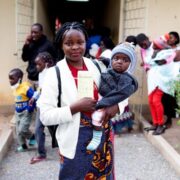
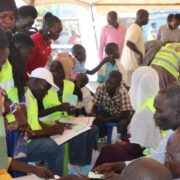
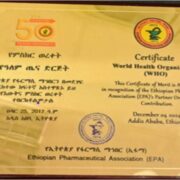
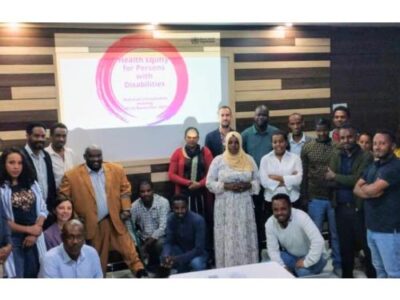
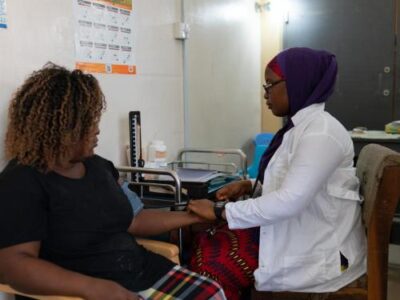
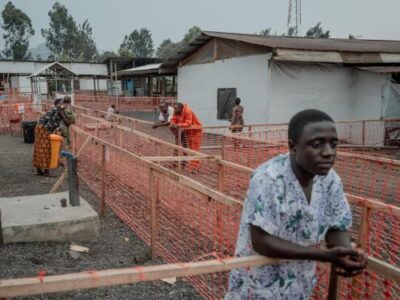
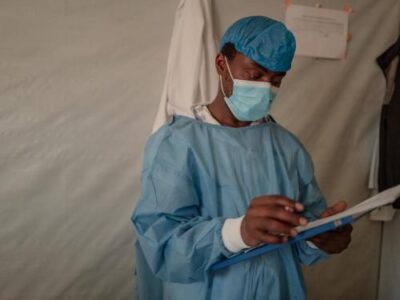

Comments